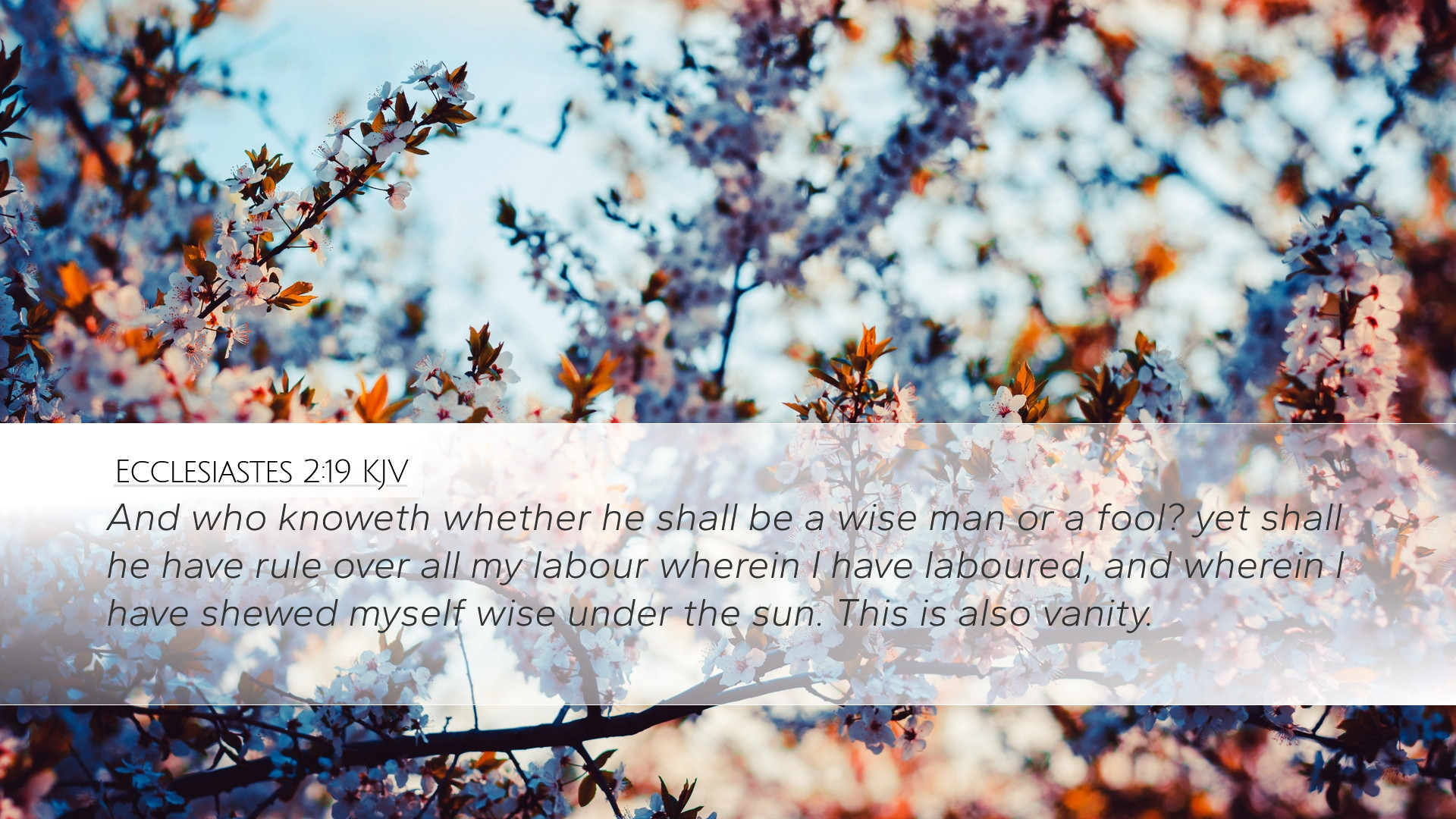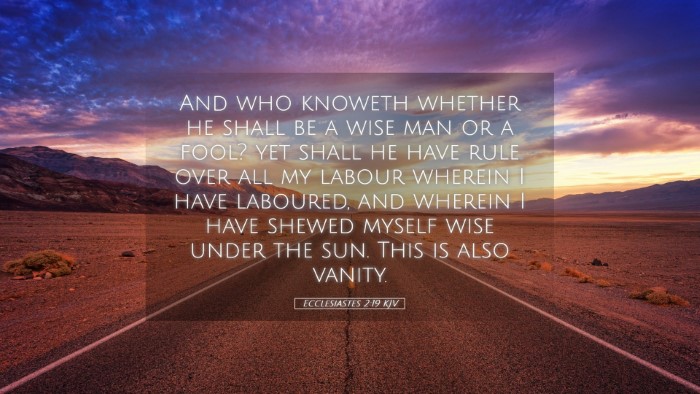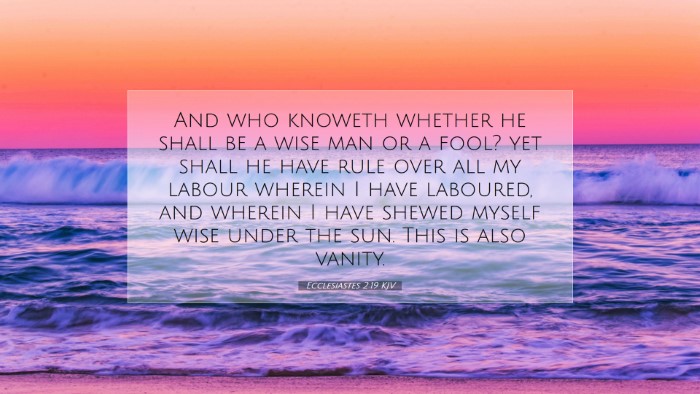Commentary on Ecclesiastes 2:19
Bible Verse: "And who knows whether he shall be a wise man or a fool? Yet shall he have rule over all my labor wherein I have labored, and wherein I have showed myself wise under the sun. This is also vanity."
Introduction
The book of Ecclesiastes is a profound reflection on the meaning of life, wisdom, and the human condition. In Ecclesiastes 2:19, the Preacher, traditionally believed to be Solomon, grapples with the uncertainty of the future—specifically, the fate of the works one leaves behind. This verse encapsulates the overarching themes of existential inquiry and the futility of earthly pursuits. The combination of insights from public domain commentaries such as those by Matthew Henry, Albert Barnes, and Adam Clarke will illuminate the depth of this passage.
Verse Analysis
The verse poses an essential question: "And who knows whether he shall be a wise man or a fool?" This rhetorical inquiry reflects the uncertainty that plagues human endeavors. Each person, despite their wisdom, is ultimately subject to fate and the unpredictability of life.
Insight from Matthew Henry
Matthew Henry emphasizes the vanity of human efforts when left to chance. He notes that despite one’s hard work and demonstrated wisdom in life, the ultimate legacy may fall into the hands of an unworthy successor. This reflects a central theme of Ecclesiastes: the fleeting nature of human achievements and the unpredictability of the end results. Henry states:
"What a debasing thought, that everything for which we have labored and striven, may be handed over to a fool!”
This thought is unsettling, yet it serves as a reminder to capture the essence of one's actions and motivations.
Albert Barnes’ Perspective
Albert Barnes reiterates the uncertainties of wealth and wisdom. He draws attention to the notion that while one may labor and prepare diligently during their lifetime, the eventual possession and management of their legacy are beyond their control. Barnes writes:
"It is utterly uncertain whether the recipient of our labor shall know how to use it wisely, or squander it foolishly."
This uncertainty reinforces a sense of futility that may lead to existential despair. Barnes encourages readers to focus on what they can control—merely their own actions and motivations—while recognizing the ephemeral nature of their consequences.
Adam Clarke’s Commentary
Adam Clarke also touches on the duality of wisdom and folly. He notes that the position of a successor—be it wise or foolish—remains unknown, thus evoking a profound truth about human existence:
"Who knows whether his estate shall remain in the hands of the wise or be entrusted to the foolish?”
Clarke suggests that this thought should evoke humility in individuals. While striving for wisdom is noble, it does not guarantee the predominance of wisdom in those who inherit one's work.
Broader Theological Implications
This verse serves as a theological inquiry into the nature of human agency and divine sovereignty. The tension between human efforts and their eventual outcomes highlights the importance of faith and reliance upon God in all endeavors.
The Paradox of Labor
Ecclesiastes 2:19, when viewed through a theological lens, reveals the paradox of labor. One’s toil might yield good outcomes during one's lifetime, but the question remains: what is the lasting impact? Both Henry and Barnes highlight that life's uncertainties call for a recognition of a higher order at play.
The Search for Meaning
This existential struggle evokes a broader inquiry into the search for meaning. Solomon’s contemplation challenges believers and scholars alike to consider what constitutes true fulfillment. Should it be found in our labor, wisdom, riches, or a lasting legacy?
- Labor is Temporary: The verse teaches that earthly achievements are transient and may not yield the results one anticipates.
- Wisdom and Folly: Engaging with Scripture, the nature of wisdom and folly comes across as a central motif, urging reflection on one’s own life and choices.
- Divine Sovereignty: Ultimately, believers are called to trust in God’s providence while navigating the complexities of life and its uncertainties.
Conclusion
Ecclesiastes 2:19 holds profound implications for pastors, students, theologians, and scholars. It challenges us to consider the impact of our lives and the legacy we may leave behind, all while reassessing our priorities in light of eternal truths. The combined insights from Matthew Henry, Albert Barnes, and Adam Clarke underscore the book of Ecclesiastes’ timeless appeal as a text that wrestles with the question of human purpose amidst the realities of life's unpredictability.


